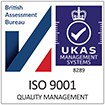TransTrain
Driver’s CPC – All you need to know; Questions and Answers.
Questions
- What is Driver CPC?
- What are the aims of Driver CPC?
- Who will Driver CPC affect?
- Who is exempt from Driver CPC?
- Can I work as a driver without a Driver CPC?
- What does Driver CPC involve?
- How do I get a Driver Qualification Card (DQC) and what does it look like?
- How much does a DQC cost?
- What are the plans to enforce these measures?
- What are / were the potential consequences for drivers of PSV/PCV and HGV/LGV of not having renewed their Driver CPC Card or Driver Qualification Card (DQC) before 9th September 2019?
- As we are now Post- BREXIT is there still the need to continue with Driver CPC?
Answers
What is Driver CPC?
Driver CPC is short for Driver Certificate of Professional Competence. It is a qualification that all professional bus/coach and lorry/truck drivers will need to have if they want to drive or continue to drive professionally.
Driver CPC was initially introduced across Europe with effect from 9th September 2008 for Bus and Coach Drivers (PSV/PCV) and from 9th September 2009 for Lorry and Truck Drivers (HGV/LGV). The original dead-lines of (2013 and 2014 respectively), have passed but both these groups should have continued or be ongoing with the training, with 9th September 2024 being the new dead-line. This initiative has been implemented throughout the European Union and is mandatory for everybody who wishes to drive professionally or for hire or reward.
What are the aims of Driver CPC?
The aims of Driver CPC are to:
Improve the knowledge of lorry and bus drivers – helping:
Road safety (and thus all road users) and to be aware of Vulnerable Road Users (VRU’s);
The road freight and passenger transport industries (better staff performance, better recruitment and retention, more economical vehicle usage);
The environment (reduced fuel consumption and vehicle wear and tear);
Recognise and accredit the knowledge and skills required for professional bus, coach and lorry drivers;
Ensure drivers continually update their skills and knowledge;
Raise the status of bus, coach and lorry drivers to promote driving as a career;
Who will Driver CPC affect?
Driver CPC affects all professional drivers of commercial vehicle’s over 3.5 tonnes, buses, coaches and minibuses over 9 seats (including the driver) unless they qualify for an exemption.
Who is exempt from Driver CPC?
There are exceptions from the Driver CPC qualification for drivers of vehicles:
used for non-commercial carriage of passengers or goods, for personal use;
undergoing road tests for technical development, repair or maintenance purposes, or of new or rebuilt vehicles which have not yet been put into service;
used in the course of driving lessons for the purpose of enabling that person to obtain a driving licence or a Driver CPC;
carrying material or equipment to be used by that person in the course of his or her work, provided that driving that vehicle does not constitute the driver’s principal activity * with a maximum authorised speed not exceeding 45 km/h;
used by, or under the control of, the armed forces, civil defence, the fire service and forces responsible for maintaining public order;
used in states of emergency or assigned to rescue missions.
* An example of a driver under exemption vii (also known as ‘incidental driver’) would be a brick layer who drives a load of bricks from the builder’s yard to the building site and then spends their working day laying bricks. In this case, driving a lorry is incidental to their main occupation.
Drivers can move in and out of an exemption, depending on the circumstances in which they are driving. For example, a bus / coach technician would be exempt while driving a bus to check that it had been repaired, but would need to hold a Driver CPC if they also drove a bus on a passenger carrying service. Likewise, a lorry / truck technician would be exempt when taking a vehicle on road test but would need to hold a Driver CPC if he was to deliver that same vehicle back to the customer. In both these isolated cases, moving in and out of an exemption would require the person to have their Driver CPC.
Can I work as a driver without a Driver CPC?
No, unless in exempted circumstances as shown above.
What does Driver CPC involve?
As well as a driving licence, bus and coach / lorry and truck drivers who drive professionally will have to hold a Certificate of Professional Competence which is renewable every 5 years. There is still be an initial qualification for new drivers and periodic training for new and existing drivers whereby drivers will be required to complete ‘periodic training’ every 5 years to remain eligible to drive professionally. Driver CPC came into force on 9th September 2008 for PSV/PCV drivers and 9th September 2009 for HGV/LGV drivers. These implementation and introduction dates apply to all EU member states. Despite fears and worries with certain drivers, the driver CPC is based on attendance only and there is normally no pass or fail element *. However, there is some discussion about there being compulsory Vulnerable Road Users training as one of the five 7 hour modules; we include a section on this in one of the TransTrain modules.
* Certain courses where a certificate is required to be gained to comply with Health & Safety ie: A First Aid Qualification, a test after the 7-hour periodic training would be necessary if the attendees wishes to use what has been learned and if an OfQual 3-year Certificate is required!
How do I get a Driver Qualification Card (DQC) and what does it look like?
For new driver’s you must complete Modules 2 and 4 or you will need to attend an approved course taken through an approved training centre for it to count towards your periodic training. The DVSA (Driver and Vehicle Standards Agency), will provide a central database to keep records of the periodic training completed by every driver, it will be the responsibility of the training centre to enter records onto the database and drivers will now only be able to access their own records by checking on-line through the Gov.uk website. All JAUPT* Approved Centre’s will be required to provide certificates as proof of training being carried out with the original certificates being the property of the driver.
* The approval process for courses is managed on behalf of the DVSA by JAUPT (the Joint Approvals Unit for Periodic Training).
On completion of initial training (4 modules) or of 35 hours of periodic training a driver will be issued with a DQC (Driver Qualification Card), to prove that they hold the Driver CPC. This maybe immediately with an initial qualification or approximately 3 months before an existing card expires if one is already held. A DQC is a card that will be prepared to be issued once 35 hours of periodic training has been carried out and will need to be carried at all times when a driver is at work. Currently these cards are issued for a 5-year period and are done so through the DVLA but there is some discussion that the cards will be replaced by a number on the driving licence.
Sample DQC Card
How much does a DQC cost?
The cost of the DQC is built into the cost of the upload fee therefore there will not normally be an additional charge for the issue of the DQC unless a driver does not have a photo licence; an EU licence with a paper attachment * or a valid UK address.
* paper attachment or driving licence counterpart will no longer be required after 6th June 2015.
What are the plans to enforce these measures?
The DVSA and Police will be responsible within the mainland UK and PSNI and DVA enforcement will all be responsible for ensuring compliance within Northern Ireland. This will be to ensure anyone driving professionally has a CPC. However, any EU enforcement body can ask a driver for proof that his or her training is up to date while they are driving in other EU Member States and can issue a penalty if a driver is in breach of the Directive.
What are / were the potential consequences for drivers of PSV/PCV and HGV/LGV of not having renewed their Driver CPC Card or Driver Qualification Card (DQC) before 9th September 2024?
After the above date, it will be an offence to drive a bus/coach or lorry/truck without holding a driver CPC, or to cause or permit a person to do so. In addition, the driver will also be committing an offence if they fail to produce their qualification card at a roadside check. If they fail to carry their qualification card as and when issued they would currently risk the minimum on-the-spot fines under Graduated Fixed Penalties of £50;
For a Driver; no CPC held by the date(s) as required they would risk a potential £1,000 fine and / or the possibility of being called to a Driver Misconduct hearing with their licence potentially being suspended until this has been done;
For a Company; to cause or permit a driver to drive they would also risk a potential fine of up to £1000 and / or the possibility of being called to a Public Inquiry to explain the reasons why they are employing drivers without them having a Driver CPC;
For any person; involved in falsification or forgery of Driver CPC related courses or documents they would risk a 2-year prison sentence; a substantial fine or both.
As we are now Post- BREXIT is there still the need to continue with Driver CPC?
We have already received calls from people asking whether they should book their Driver CPC Course or not with some even thinking it would now be cancelled because the UK has voted to leave the EU. Let’s face it – Driver CPC came from the EU didn’t it? The answer for now is quite simple; the vote to leave the EU has no impact at all for Driver CPC so nothing has changed.
Transport Law Specialists Backhouse Jones have stated the following about Driver CPC following the UK’s vote to leave the EU;
“Driver CPC obligations are also unlikely to change, this is because, although the regulations were created by the EU, the UK is a signatory of the, snappily titled, European Agreement Concerning the Work of Crews of Vehicles Engaged in International Road Transport (AETR) which contains driver CPC obligations. The UK is expected to remain a signatory of AETR as a condition of ongoing trade with the EU. This will be in line with a number of other non-EU countries.”
Therefore, even after we formally leave the EU in December 2020, Driver CPC seems highly unlikely to be “scrapped” given we still wish to trade with EU countries. Our advice to all vehicle Operators and Drivers is very simple; the requirements for Driver CPC have not changed so be sure all the training is completed.
There has been much on social media such as Facebook about petitions to immediately scrap the Driver CPC and there have been comments about how poor the training is and what a waste of time it has been. I would hope that anyone who attended training with Transolva Ltd would not agree with those comments.
We will freely admit that Driver CPC in its current form needs amending; the ability to attend the same course over and over being removed; a course should be made so that the person attending must speak and understand English; make at least 1 day a year compulsory; maybe shorter courses and perhaps look at adding some form of exam or assessment. I am sure many of you have other ideas but …….. to scrap the Driver CPC now would, in our opinion, be a step backwards for the industry.
So …. …. …. Whether you voted to Stay or Leave, it seems we are leaving and we now need to get on with making the best of this decision and looking to the future.
Driver’s CPC – All you need to know; the Solution
Since January 2010, Transolva Ltd have been delivering various Driver CPC courses mainly in the South West covering Devon, Dorset, Hampshire, Somerset and Wiltshire but also throughout the UK for some national companies. Transolva was initially, and continues to be a tachograph analysis company, analysing both analogue charts and digital data being formed following the collapse of a company offering a similar service. Since then the company has grown from strength to strength and has been operating for almost 14 years of existence and with its staff have over 40 years of experience. However, seeing the opportunity to ensure that individual drivers and companies receive the best quality driver training to achieve their Driver CPC, a division of the company TransTrain was formed.
Also, in the Gloucester, North Somerset and Wiltshire areas, our associated training partner, R B Training has been offering transport industry training since 2008, drawing on in excess of 30 years of experience gained from the various backgrounds within the transport industry. R B Training particularly specialise in offering Manual Handling including Mechanical Handling Equipment such as fork lift trucks, cranes, ‘Moffat Mounties’ etc. and are suitably accredited.
The company became a JAUPT Approved Centre in 2011 and are therefore approved to offer approved training courses for Periodic training (Driver CPC), under the trading name of Transolva T/a TransTrain. This enables us to offer a wider variety of courses calling on the vast amount of experience of the assessor’s / trainers in addition to the aforementioned management contained within the companies.
All the assessors / trainers from TransTrain and R B Training have completed or are attempting to complete a PTLLS Course (Trainers in the Industry), and we will continue to ensure they are trained in other aspects of such diverse courses as; Emergency First Aid; Health and Safety, MHE (Mechanical Handling Equipment) to include crane equipment and fork lift truck training.
Other courses are always being considered and can be approved to assist with ensuring companies receive the best quality training to benefit individual operations and businesses. These would generally be put together in conjunction with individual companies but would also consider the experience and knowledge of personnel within TransTrain and its associated training partners.
Our current training topics are:
Driver licences and drivers’ hours – (3.5 hour module)
Driver CPC and digital tachographs – (3.5 hour module)
Professional driver, drink and drugs – (3.5 hour module)
Driving safely and SEEDS – (3.5 hour module)
Driver wellbeing – (3.5 hour module)
Emergency First Aid * – (7+ hours)
Safe, Efficient & Effective Driving Skills – (7 hours – not currently available but planning to be within 3 – 4 months) ***
Daily checks and basic maintenance – (3.5 hour module – not currently available)
Safe loading and load security – (3.5 hour module)
The principles and theory of manual handling – (3.5 hour module)
First Aid annual skills update – (3.5 hour module)
The Car Transporter; Loading at Working at Height – (3.5 hour module – not currently available) ***
Coach Evacuation and Passenger Safety – (3.5 hour module – not currently available) ***
* For an extra charge of £12 + VAT an attendee can also have an official 3 year Ofqual (Office of Qualifications and Examinations Regulation) EFAW certificate.
(see below for a link to the HSE First Aid at Work assessment tool)
** Has a formal test after it and will attract an extra charge of £30.00 for an industry approved certificate and for the test.
*** Requires the use of a customer vehicle; is both classroom and vehicle based with the SEEDS 7-hour course would be on a 2 driver to 1 assessor / trainer basis.
Other courses are currently being developed and will be added to the above list in the very near future; keep checking our websites for update’s!
In addition to the above both companies offer additional services such as Transport & Coach Company Compliance Checks and Transport Advisory Services.
NB Extra costs may be incurred when hiring suitable venues where facilities are not available; tea, coffee and nibbles are included. Other refreshments may be extra.
Useful Documents
To view or download, please select from the documents below:




